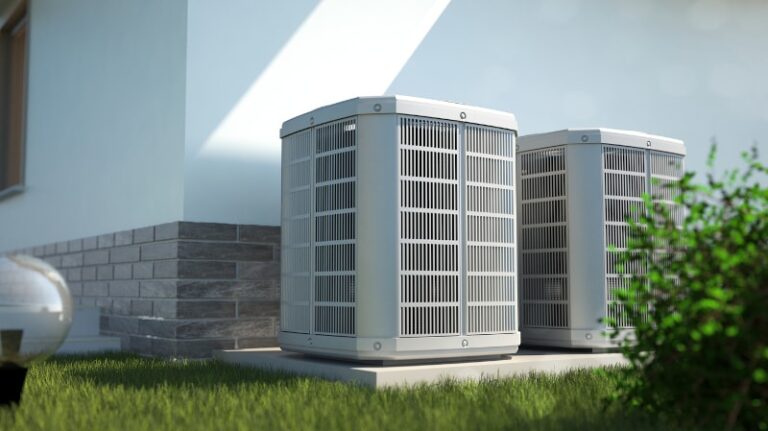If you’re wondering if it’s time to replace your heat pump, you’re not alone. When a heat pump ages, it starts to fail and loses its efficiency. Here are a few ways to check to see if it’s time to replace your heat pump in Buford, GA.
How Does a Heat Pump Work?
Unlike a furnace, a heat pump does not generate heat but moves it from one place to another. The heat pump absorbs the heat from outside and transfers it inside. This method of heating works even when it’s cold outside.
How Long Does a Heap Pump Typically Last?
According to The U.S. Department of Energy, a heat pump has an average lifespan of 10 to 15 years. While there are heat pumps that last longer, once they pass 15 years, it’s only a matter of time before they need to be replaced.
How to Know When to Replace Your Heat Pump in Buford, GA
Below are a few signs to look for when you’re wondering if its time to replace your heat pump. If you find one or more of these signs, it’s best to start looking for a new heat pump.
- Diminished airflow: If the airflow has significantly decreased, this is a sign that the unit’s compressor is going out. If your thermostat is set correctly and the air is still cold, then the heat pump is not working as it should.
- Excessive dust in the home: If there’s an inordinate amount of dust in your home with no known cause, then it could be coming from leaky ducts. Excessive dirt isn’t good for those with allergies or asthma.
- Frequently needs repairing: While maintaining the heat pump to keep it operating well is one thing, constant repairs are quite another. They not only cost you more money but are also a waste of time.
- Humidity problems: Humidity is a typical thing to experience in the summer. If there’s excessive humidity in the summer with a heat pump, or if it’s too dry during the winter, then there’s an issue with the heat pump.
- Leaks or producing excess moisture: Some condensation or dripping is normal, but the heat pump should stay dry. If there is moisture or condensation inside it, then it’s time to replace the unit.
- Spikes in energy bills: One of the biggest signs that you may need to replace the heat pump is that there is a sudden increase in your energy bill. You don’t want to keep something that is going to cost more money to run than it should.
- Noises or strange smells: A heat pump should operate almost silently, so unusual noises might signal a need for repairs. The same goes for odors.
Types of Heat Pumps
There are different heat pumps to choose from. The best one for you depends on your preference and needs.
- Air-Source: These are the most commonly installed if there is ductwork currently in place in the home. The ductwork makes it easier to install.
- Ductless: These are similar to an air source heat pump. This option has an outside compressor unit and an inside air handler.
- Gas-fired: These are also known as absorption heat pumps. They use an alternate fuel source such as gas.
- Geothermal: This option works best for bigger homes. These are also the most expensive heating and cooling option.
- Solar: Solar heat pumps use solar panels to provide the system with a power supply. These could combine with geothermal energy so that only renewable energy sources heat and cool the entire home.
How Does a Heat Pump Save Money?
Heat pumps save you money since they don’t use electricity, and they create heat at a higher efficiency rate than electrical heating units. A heat pump saves you anywhere from 30% to 80% on your energy bills.
Don’t stick with a heat pump that needs replacing and costs you money. Pruitt Heating & Air, Inc. has proudly served the Buford, GA, area since 1978. We’re committed to your heating and cooling needs. If you need to replace your heat pump or are thinking of switching to a heat pump, contact Pruitt Heating & Air today for an appointment.
Image provided by iStock

